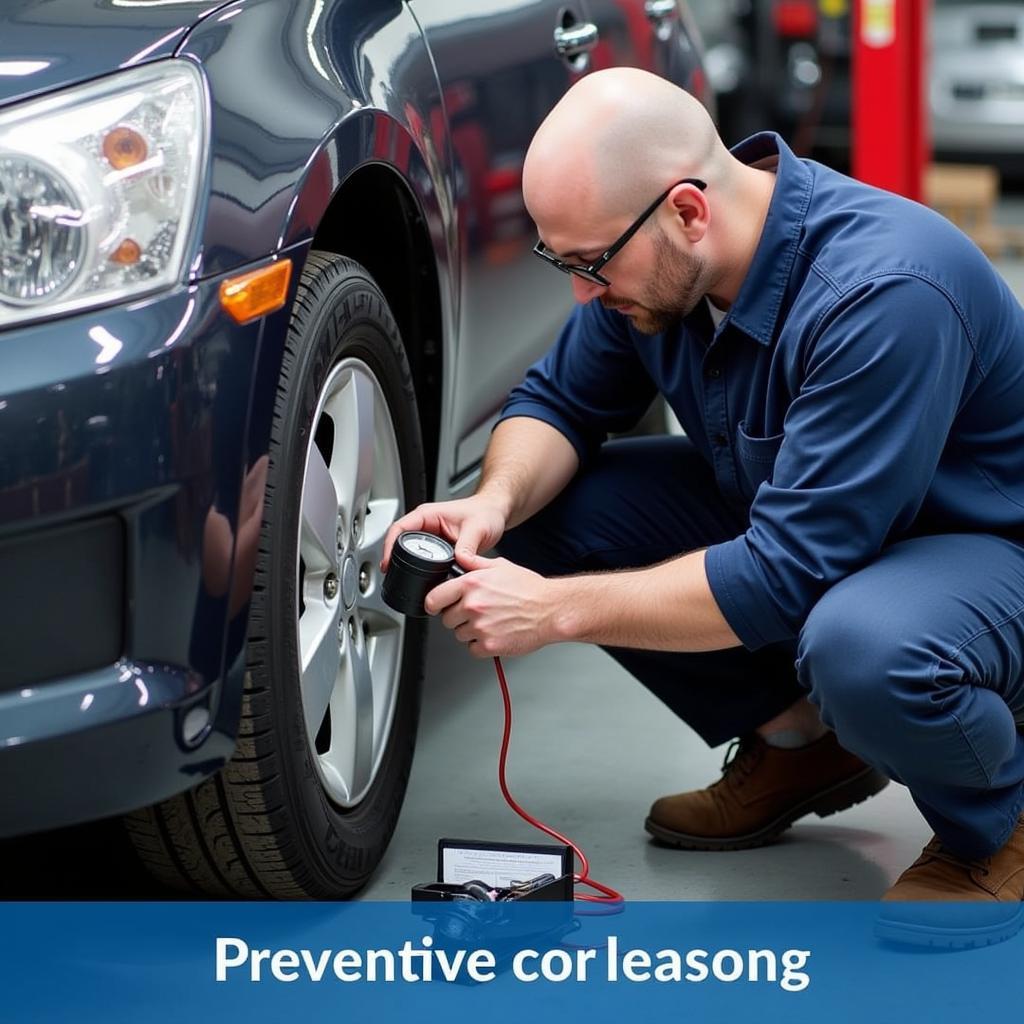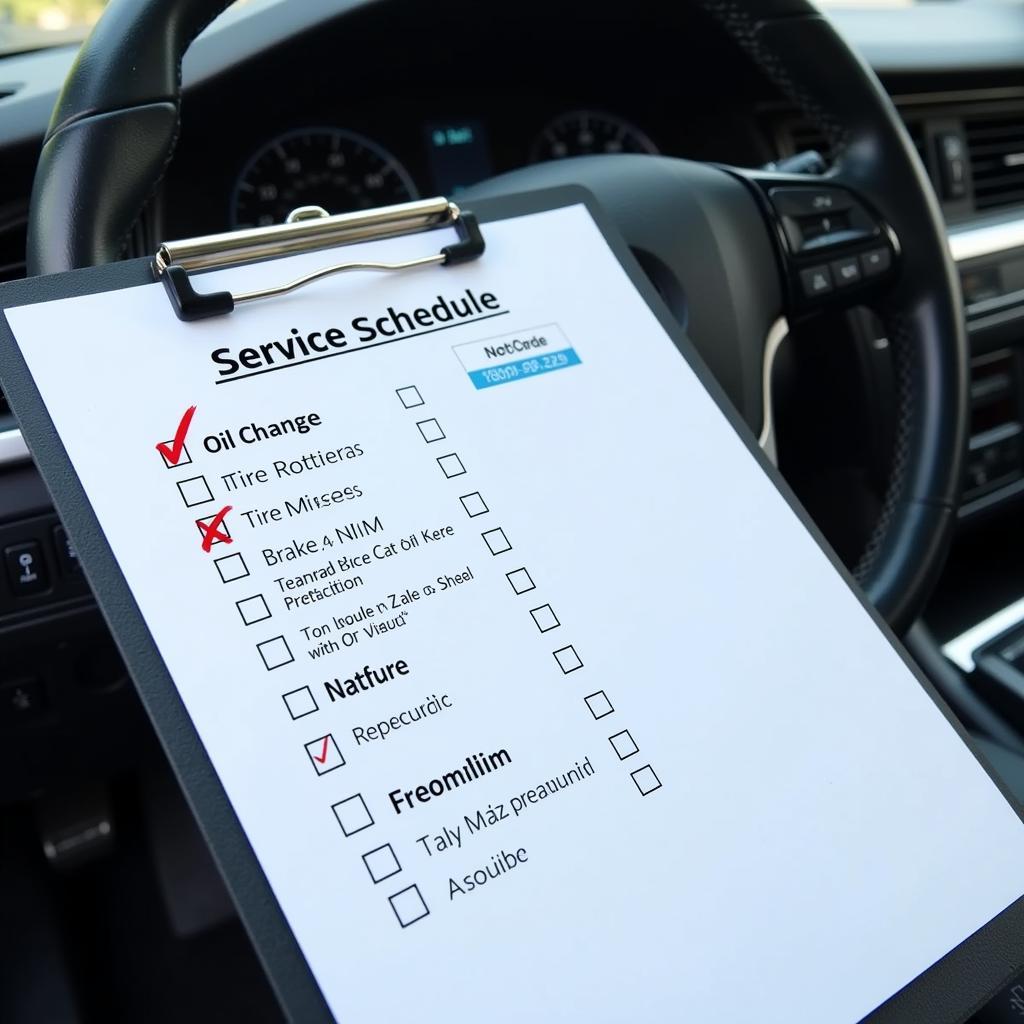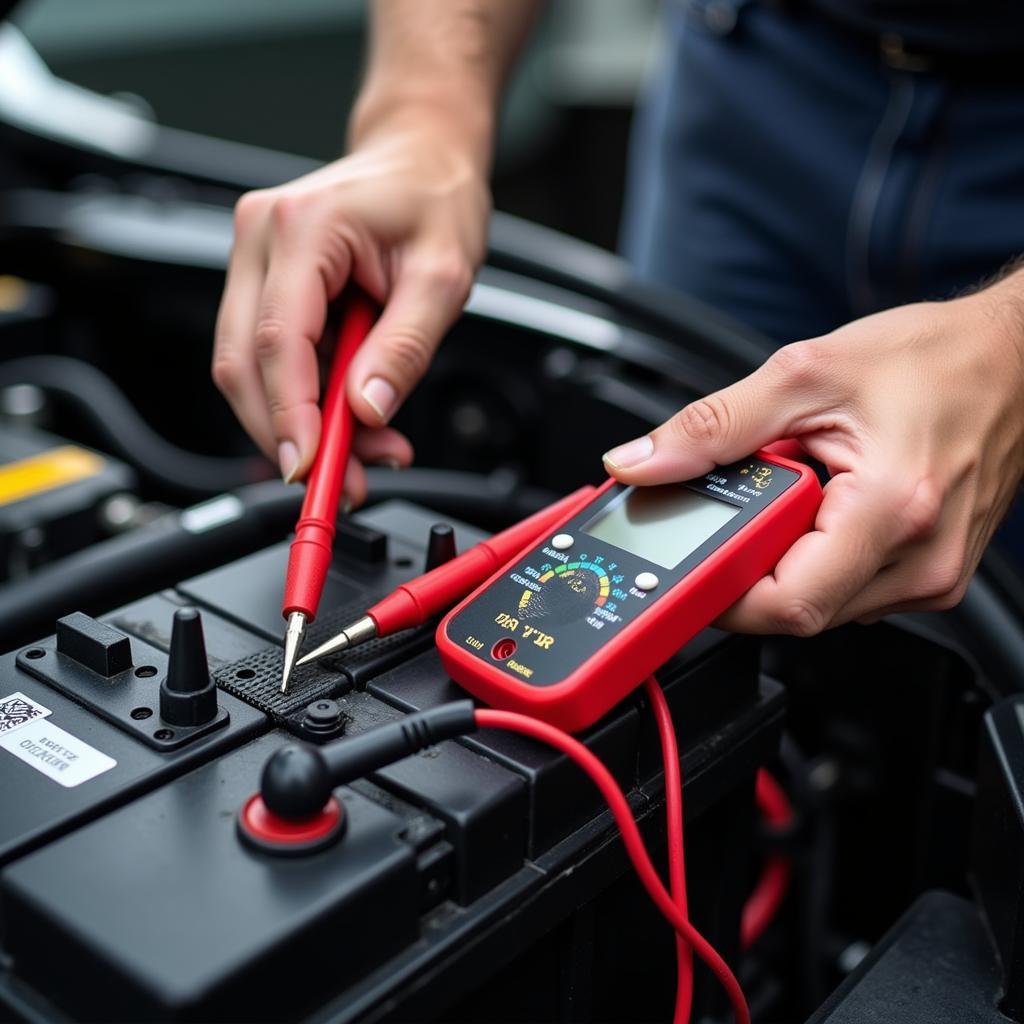Do You Have to Get Your Car Serviced Every Year?
Do You Have To Get Your Car Serviced Every Year? It’s a question many car owners ask, and the answer isn’t always a simple yes or no. While annual servicing was once the standard recommendation, modern vehicles and advancements in automotive technology have made things a little more complex. This article will delve into the factors influencing service intervals, helping you understand when your car truly needs attention.
Understanding Car Service Intervals
Service intervals are determined by a combination of factors, including the make and model of your vehicle, your driving habits, and the type of oil used. Most manufacturers provide recommended service schedules in the owner’s manual, often differentiating between “minor” and “major” services. Minor services typically involve oil and filter changes, along with basic checks. Major services are more comprehensive, addressing critical components like brakes, suspension, and the cooling system. Ignoring these recommendations can lead to premature wear and tear, reduced fuel efficiency, and even costly repairs down the line.
If you’re wondering about the benefits of car buying services, you might find our article “Do Car Buying Services Any Good?” helpful. It explores the pros and cons of using these services.
Decoding Your Owner’s Manual
Your owner’s manual is the ultimate guide to understanding your car’s specific service needs. It will outline the recommended service intervals based on both time and mileage. For instance, you might see recommendations like “every 6 months or 7,500 miles, whichever comes first.” This flexibility acknowledges that driving conditions and habits vary significantly. Someone who drives long distances regularly will accumulate mileage faster than someone who primarily uses their car for short trips.
Time vs. Mileage: Which Matters More?
Both time and mileage contribute to wear and tear. Even if you don’t drive frequently, time can still degrade fluids like oil and coolant, making regular changes essential. High mileage, on the other hand, puts more stress on mechanical components, necessitating inspections and potential replacements.
Modern Cars and Extended Service Intervals
Advances in automotive technology have led to extended service intervals for many modern vehicles. Synthetic oils, for example, last longer than conventional oils, allowing for less frequent oil changes. Improved engine designs and manufacturing processes also contribute to greater durability. However, even with these advancements, regular checks and maintenance remain crucial.
Have you ever wondered, “A place where you service cars is called what?” Our article on car service locations can provide you with more information.
The Impact of Driving Conditions
Driving conditions significantly influence how frequently your car needs servicing. Extreme temperatures, stop-and-go traffic, and driving on rough terrain can accelerate wear and tear. If you frequently encounter these conditions, you may need to service your car more often than the manufacturer’s recommended intervals.
Severe Driving Conditions: What Are They?
Severe driving conditions encompass a range of situations, including:
- Extreme temperatures (both hot and cold)
- Frequent short trips
- Towing or hauling heavy loads
- Driving in dusty or off-road conditions
- Stop-and-go city driving
If your driving habits fall under these categories, consider adjusting your service schedule accordingly.
For those interested in Uber’s car service, our article “How Does Uber Car Service Work?” provides valuable insights.
The Importance of Regular Inspections
Even if your car isn’t due for a full service, regular inspections are crucial. Checking your tire pressure, fluid levels, and lights can help identify potential issues early on, preventing more serious problems and saving you money in the long run.
 Regular Car Inspections Benefits
Regular Car Inspections Benefits
Conclusion
Do you have to get your car serviced every year? While not always strictly necessary, adhering to the manufacturer’s recommended service schedule or consulting with a qualified mechanic is the best way to ensure your car remains in optimal condition. By considering your driving habits, the age and model of your car, and the prevailing driving conditions, you can tailor a maintenance plan that keeps your car running smoothly and safely for years to come.
FAQ
-
What happens if I skip a car service? Skipping scheduled maintenance can lead to premature wear and tear, reduced fuel efficiency, and potentially costly repairs down the line.
-
How often should I check my tire pressure? It’s recommended to check your tire pressure at least once a month.
-
What is the difference between a minor and major service? Minor services typically involve oil and filter changes and basic checks, while major services are more comprehensive, addressing critical components like brakes and suspension.
-
Can I service my car myself? While some basic maintenance tasks can be performed at home, it’s generally recommended to have your car serviced by a qualified mechanic.
-
How can I find a reliable car service center? Ask for recommendations from friends and family, check online reviews, and look for certifications like ASE (Automotive Service Excellence).
-
How much does a car service cost? The cost of a car service varies depending on the type of service, the make and model of your car, and the location of the service center.
-
What should I do if my car’s check engine light comes on? Take your car to a qualified mechanic as soon as possible to diagnose and address the issue.
Situations Where You Might Have Questions About Car Servicing:
- Unusual noises: Hearing new squeaks, rattles, or grinding sounds could indicate a problem that needs professional attention.
- Warning lights: Any illuminated warning lights on your dashboard should be investigated promptly.
- Performance issues: Decreased fuel efficiency, sluggish acceleration, or difficulty starting could signify a need for servicing.
- Fluid leaks: Check for any leaks under your car and address them immediately.
Further Resources:
Looking for more information? Explore these related articles on our website:
- Is Service Plumbing A Good Career?
- What is the career service function in Brainfuse called?
Need Help?
Contact us via WhatsApp: +1(641)206-8880, Email: [email protected], or visit our office at 456 Oak Avenue, Miami, FL 33101, USA. Our customer service team is available 24/7 to assist you.

